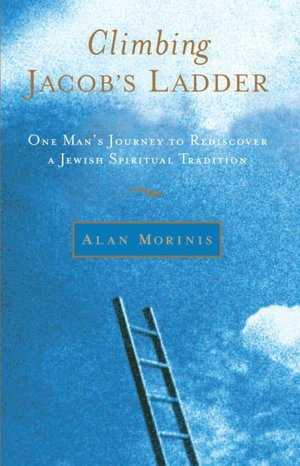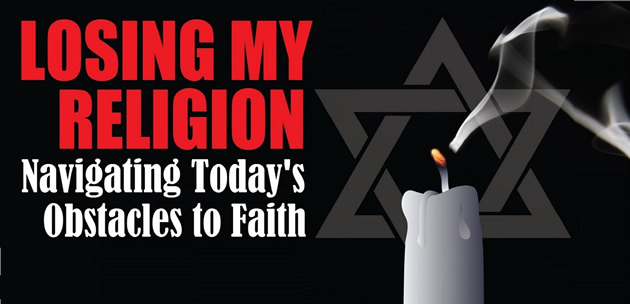 Climbing Jacob’s Ladder: One Man’s Journey to Rediscover a Jewish Spiritual Tradition, by Alan Morinis, Broadway Books, New York 2002 – Reviewed by Rabbi Michael Skobac
Climbing Jacob’s Ladder: One Man’s Journey to Rediscover a Jewish Spiritual Tradition, by Alan Morinis, Broadway Books, New York 2002 – Reviewed by Rabbi Michael Skobac
It is no secret that the spiritual paths of the East have been attracting a steady stream of Jewish seekers. Sylvia Boorstein explores the nature of this magnetism in her book That’s Funny, You Don’t Look Buddhist. She shares an insight from Rabbi Jonathan Omer-Man that “Jews are interested in Buddhism because it is a complete, mature, sophisticated spiritual path.” I remember feeling rather depressed after reading those words. They ignited the Borsht-Belt of my consciousness, “What are we, chopped liver?!”
Ironically, many of the spiritual treasures of the East are also found within Judaism. Unfortunately, they are usually buried treasures, all too often entombed in rabbinic tomes. After constantly being pointed to ancient texts during his searching, Avram Davis wrote in the introduction to his Way of Flame that, “I did not need more books. I was looking for the living power of the tradition. I needed not the description of the embrace of God, but the actual ongoing embrace itself.”
After some painful personal setbacks, Alan Morinis was ready for the embrace himself. Having tasted the sweet spiritual nectar of India in his younger years, he was now hoping to find his nourishment within the Jewish tradition. Morinis began his search expecting to be drawn to the mysticism of Kaballah and Chassidut. However, it was only the writings of the obscure 19th century Musar movement that truly resonated with his soul.
In the words of cooking wizard Emeril, Musar strives to take Jews and “kick them up a notch,” to transform “religious” people into truly spiritual ones. With penetrating insight into our psyches, Musar teachings refine our aspirations, our sensitivity and our sincerity. Morinis consumed all the Musar classics he could get his hands on, but realized the need to find a seasoned guide. He was able to connect with Rabbi Yechiel Perr, an heir to the Novarodock School of Mussar, and traveled several times from Vancouver to New York to learn up-close with his mentor.
Climbing Jacob’s Ladder is an engaging introduction to the world of Musar as seen through the lens of Morinis’ personal search. The encounters with Rabbi Perr are organized into chapters dealing with essential Musar themes, including an understanding of the soul, the idea of holiness, our relationship with G-d and interpersonal relationships. One of the distinct features of the Musar tradition is the employment of personalized practices to help internalize the teachings, and Morinis includes simple exercises for each chapter.
It is truly tragic that so many of the masters of Musar perished during the Holocaust. With them, the tremendously powerful teachings and practices of this vital movement have virtually disappeared from the world. This is especially unfortunate in our generation that is so much in need of spiritual revival. Hopefully, Climbing Jacob’s Ladder will go beyond being one person’s journey to rediscover a Jewish spiritual tradition and help transmit its wonderful treasure to many other thirsty souls.


